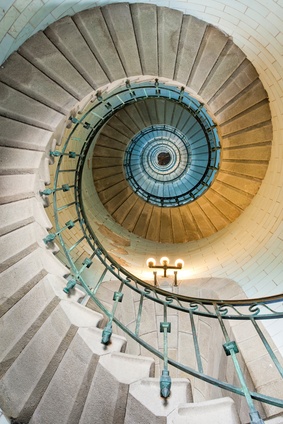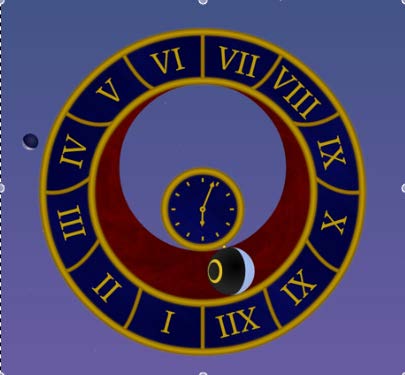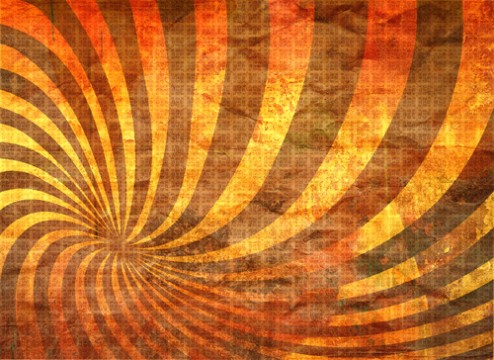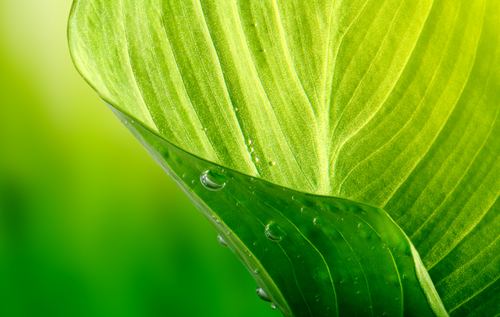Category: Health and Vitality
By LeAnna J. Carey | Sep 25, 2012

Robin Sharma says that, “better awareness leads to better decisions, which leads to better results.” Not too many would argue with Sharma because success speaks for itself and he is absolutely right. Let me ask you - are you aware of your room temperature right now? Is it too warm, too cold? The temperature of your work place as an impact on your productivity, according to Fast Company, in reporting a study conducted by researchers at Cornell University.
The research discovered that employees who worked in cold temperatures were less productive and more likely to make errors in their work. Researchers adjusted an office thermostat and found that when the temperature was set to 68 degrees, employees committed 44 percent more errors and were less than half as productive as when it was set to a warmer 77 degrees. The theory behind the decline in productivity that when your body's temperature drops, more energy is expended trying to keep warm; energy that is diverted from concentration, creativity and insight.
The opposite in temperature settings is true for achieving a good nights sleep, according to the National Sleep Foundation. In their survey, they asked what makes for a good nights sleep and six in ten, rated on a 5 point scale, indicated that the following elements were important:
· Quiet room (74%)
· Dark room (73%)
· Cool room temperature (67%)
· Fresh air, free of allergens (63%), and/or
· Clean bedroom (62%).
Your productivity can be impacted before you even get into the office from a too warm thermostat setting the previous night. You get enough curve balls thrown at you daily, but temperature awareness is something that can be controlled.
By Virginia Gurley | Aug 28, 2012

If you’re into science, the research revealing the inner workings of circadian rhythms is pretty fascinating. But intriguing as this science is, it’s not the same as directly experiencing in-the-moment attunement with solar time. It’s that direct experience of being in sync with the sun that awakens awareness of how powerful and fundamental the sun cycle is for our wellbeing and health.
Thanks to the good work of Yale and Jackie at Better Tymes Project, you can get a beautiful visual sync-up with your local solar and lunar time using their cool (free) screensaver, TrueTyme. I find myself drawn to checking in with the TrueTyme screensaver every few hours throughout the day and evening. It’s hard to put into words why this visualization of solar time is so alluring – it feels like a positive addiction.
Because I’m an iPhone user, I haven’t been able to check out their Android application, but I’m hoping that will change soon. Better Tymes Project is in the process of crowdsourcing funds so they can port True Tyme to the iOS platform. Please join AuraViva to support Better Tymes Project bringing their wonderful approach to visualizing sun and moon time to iPhone users everywhere!
By LeAnna J. Carey | Sep 23, 2011

Thomas Dekker said that “sleep is the golden chain that ties health and our bodies together.” Most of us would agree that we feel at the top of our game after a good night’s rest and feel less than competitive after a restless night. One third of each day is spent sleeping and a new epidemiology study reports that there has been a decline in sleep over the past several decades by 1.5 to 2 hours, with close to one third of adults reporting they sleep less than 6 hours per night. The news does not get any better, as other research shows that short sleep duration may be a potential risk factor for newly diagnosed type 2 diabetes.
So what does this mean for the everyday person who needs to stay competitive in the market place and still have energy for family, friends and self? First of all, recognize that people are living and working longer. It is time to start thinking about personal energy and productivity, because employers are looking into ways to maintain high performing work places. This past June, Representatives Klobuchar and Paulsen announced the creation of a congressional caucus that will focus on ways for companies to support employee health and wellness. These initiatives are a positive move that will bring the impact of lifestyle health decisions to a greater level of awareness. Health decisions, however, are personal and making a commitment for healthier lifestyle choices is an effective starting place.
The obvious choices are to use less alcohol, tobacco, be more active and choose a healthier diet, but there are less obvious changes to make – like understanding your circadian rhythm and what will tip the scale to keep you unbalanced and less productive. Your body is composed of many internal “clocks” that stay in rhythm with light and dark, hot and cold, and activity and rest. Here are some tips on how to create more energy and a more productive day:
-
Be physically active in the late afternoon. If you exercise first thing in the morning, your heart works harder in order to send more blood to the skin to meet the core body’s demand to be cooler. That’s why most adults have a peak stamina time is in the late afternoon.
-
If you have difficulty transitioning from sleep to wakefulness, sunlight helps, but when that is impossible, use bright interior lights that give off at least 400-800 lumen.
-
Your body anticipates a substantial food boost shortly after waking, and this is key to synchronizing the cortisol rhythm to wakefulness. Try eating 25-35% of your total daily calories at breakfast – this helps coordinate your cortisol rhythm, gives you more opportunity to burn them off and allows you to eat a smaller dinner.
Try these tips and you will see an improvement in starting out your day with more energy. “Well-spent day brings happy sleep,” Leonardo da Vinci
By LeAnna J. Carey | Jul 27, 2011

Socrates said that, "The unexamined life is not worth living." Fortunate that Socrates did not live in today's ....wait, this is exactly what he was speaking about - taking the time to examine your life. If you were to examine what your last week looked like, chances are you would recall your energy states; moments of creativity, frustration with your schedule, creativity, fatigue, or moments where you were able to relax and create balance. Nothing is as frustrating as running out of time and energy when needing to check things off 'the list.' Socrates' question is personal and sparks reaction; for example, how can change occur, when one does not take the time to examine his or her life?
If we were to jump to the future and then look back on our lives, two of the questions we might find ourselves asking are:
-
What did I spend my time on?
-
Why was I so busy?
Let's consider that we all have the same 24 hours in a day. Most of us work no less than 8 hours a day, and within that day, there are times where you are the most productive. For me, don't call between the hours of 10AM and 2PM, I'm writing - I actually feel creative, my energy level is rocking, my thinking is clear - a different story after 9PM. When I began to rearrange my schedule to my peak productivity times, there was an immediate impact on my sense of productivity, balance, and energy. I actually have time to examine my goals, and strange as this may seem, my goals are bigger, I accomplish more... and there is more balance. Go figure. The key is taking time to reflect on what I need to change.
We all want a life worth living. So, if you were to redesign how you spend your time, how would you align your peak productivity times to accomplish your life goals?
By LeAnna J. Carey | Jun 14, 2011

Oprah said, " Everyone has to learn to think differently, bigger, to open to possibilities" When was the last time you reflected or imagined your possibilities? To cultivate a blueprint of possibilities you need to tap into perspective - and that requires energy. As impossible as it sounds, successfully meeting the demands of life and balance are both achievable if you have an open perspective and a healthy energy flow. While the connection between mind and body can probably be attributed to the ancient Greeks, in contemporary society, most of us are trying to create a balanced life and live to our fullest potential.
When picturing someone who realizes their possibilities, does that person also look like a person with a great deal of personal energy? We have previously addressed that one of the most important steps to feeling energized is to get enough sleep; now, let's explore changing the way you think. One helpful tip is remove 'tail-enders' - yes, you heard me, correctly. According to Feinstein, Eden & Craig, in their book, The Promise of Energy Psychology, "tail-enders involve a limiting self-image that instructs you that the desired state is not possible, you are not capable of it." Their example, "But, if I lose the weight, others will expect me to keep it off," or in this case, my example, 'if I tap into my possibilities, I may have to make different lifestyle chioces." Feinstein, et al, goes on to suggest to bring your goal, even if dimly recognized, into the forefront, write it down; doing this may reveal attitudes that are keeping your goals from becoming a reality.
Thinking differently is the first step to changing anything in our lifestyle, so let's start with understanding that a key resource for restoring your energy is your circadian synchrony- in other words, the timing of light, ambient temperature, the timing of meals, fluids and activity are all related and need to be in sync. It's also important to realize that your personal energy is renewable! Your possibilities will take you as far as you have the energy to discover and act on them. Being open to and connecting with the elemental energy and rhythms of the natural world like sunlight, the sky, the signs of the current season, the time of day, is an ever present source of energy that automatically makes us more open. If you are making daily lifestyle choices to sync up, you are stoking your daily source of energy - consider the possibilities!




